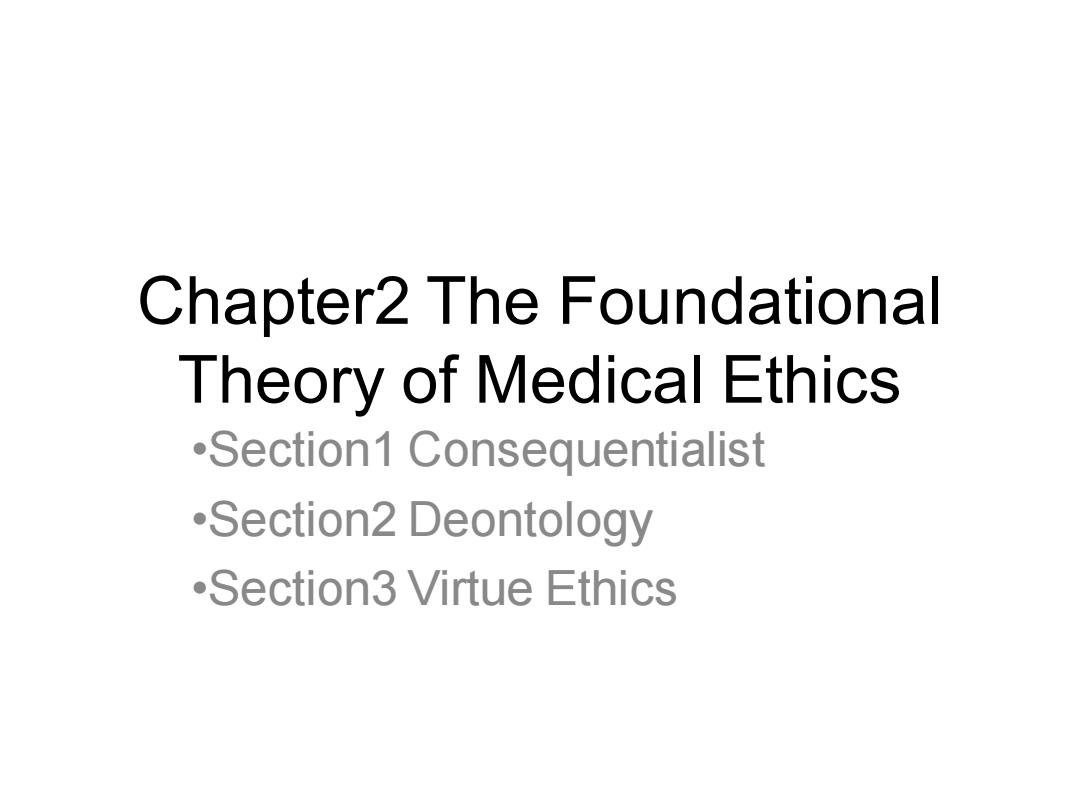
Chapter2 The Foundational Theory of Medical Ethics .Section1 Consequentialist .Section2 Deontology .Section3 Virtue Ethics
Chapter2 The Foundational Theory of Medical Ethics •Section1 Consequentialist •Section2 Deontology •Section3 Virtue Ethics
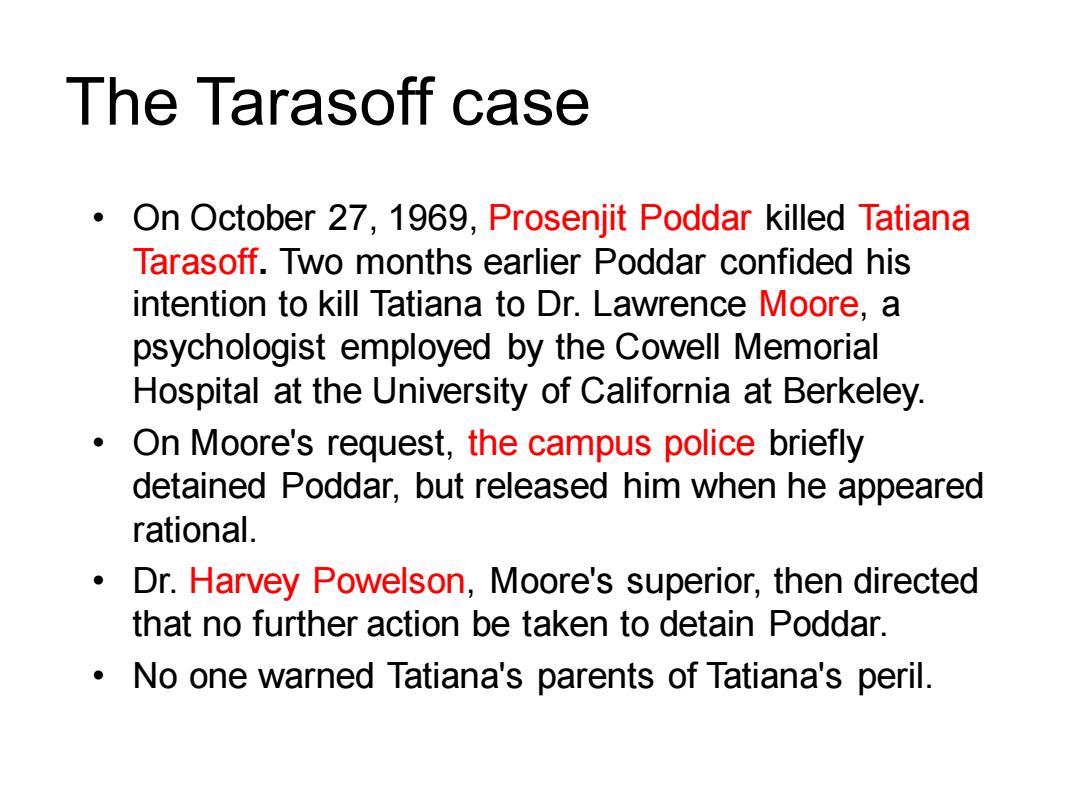
The Tarasoff case On October 27,1969,Prosenjit Poddar killed Tatiana Tarasoff.Two months earlier Poddar confided his intention to kill Tatiana to Dr.Lawrence Moore,a psychologist employed by the Cowell Memorial Hospital at the University of California at Berkeley. On Moore's request,the campus police briefly detained Poddar,but released him when he appeared rational. Dr.Harvey Powelson,Moore's superior,then directed that no further action be taken to detain Poddar. No one warned Tatiana's parents of Tatiana's peril
The Tarasoff case • On October 27, 1969, Prosenjit Poddar killed Tatiana Tarasoff. Two months earlier Poddar confided his intention to kill Tatiana to Dr. Lawrence Moore, a psychologist employed by the Cowell Memorial Hospital at the University of California at Berkeley. • On Moore's request, the campus police briefly detained Poddar, but released him when he appeared rational. • Dr. Harvey Powelson, Moore's superior, then directed that no further action be taken to detain Poddar. • No one warned Tatiana's parents of Tatiana's peril
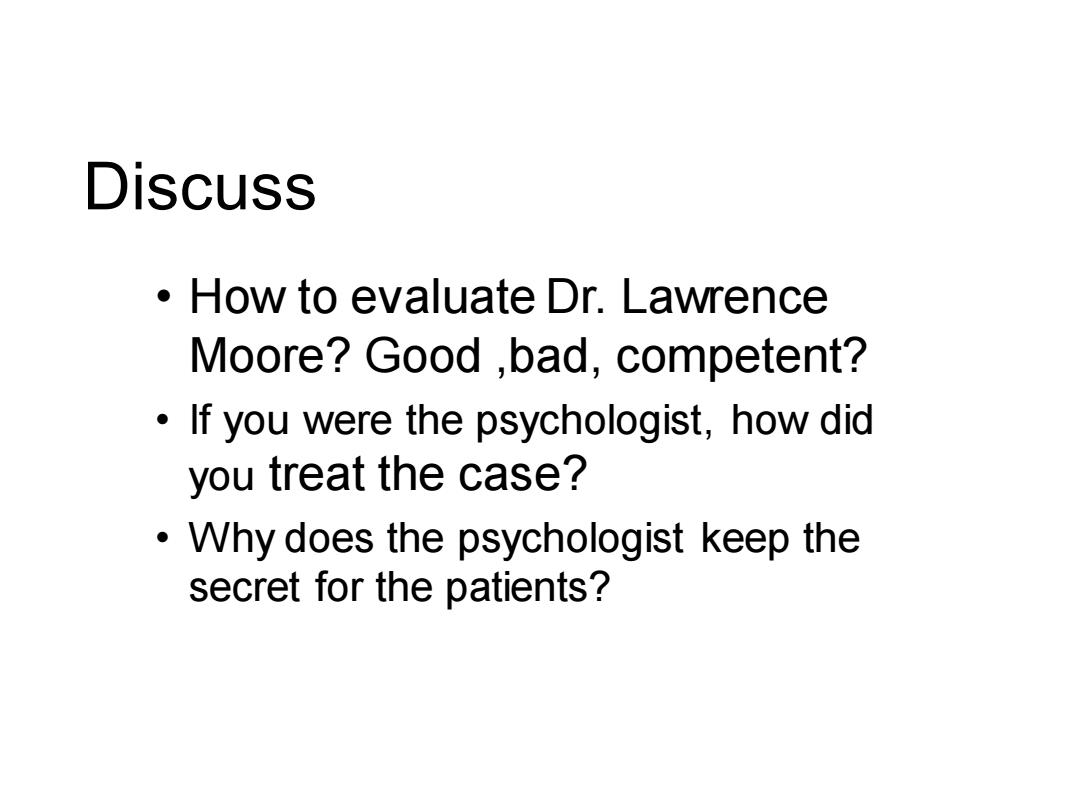
Discuss How to evaluate Dr.Lawrence Moore?Good bad,competent? If you were the psychologist,how did you treat the case? Why does the psychologist keep the secret for the patients?
Discuss • How to evaluate Dr. Lawrence Moore? Good ,bad, competent? • If you were the psychologist, how did you treat the case? • Why does the psychologist keep the secret for the patients?
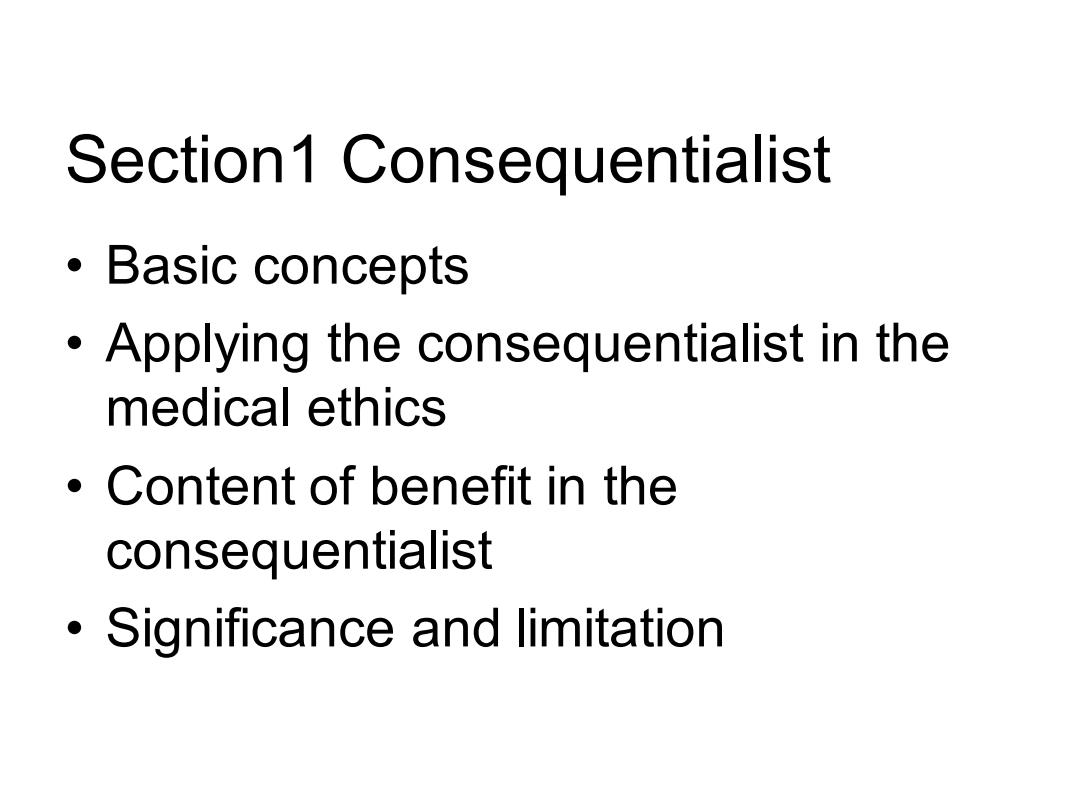
Section1 Consequentialist ·Basic concepts Applying the consequentialist in the medical ethics Content of benefit in the consequentialist Significance and limitation
Section1 Consequentialist • Basic concepts • Applying the consequentialist in the medical ethics • Content of benefit in the consequentialist • Significance and limitation
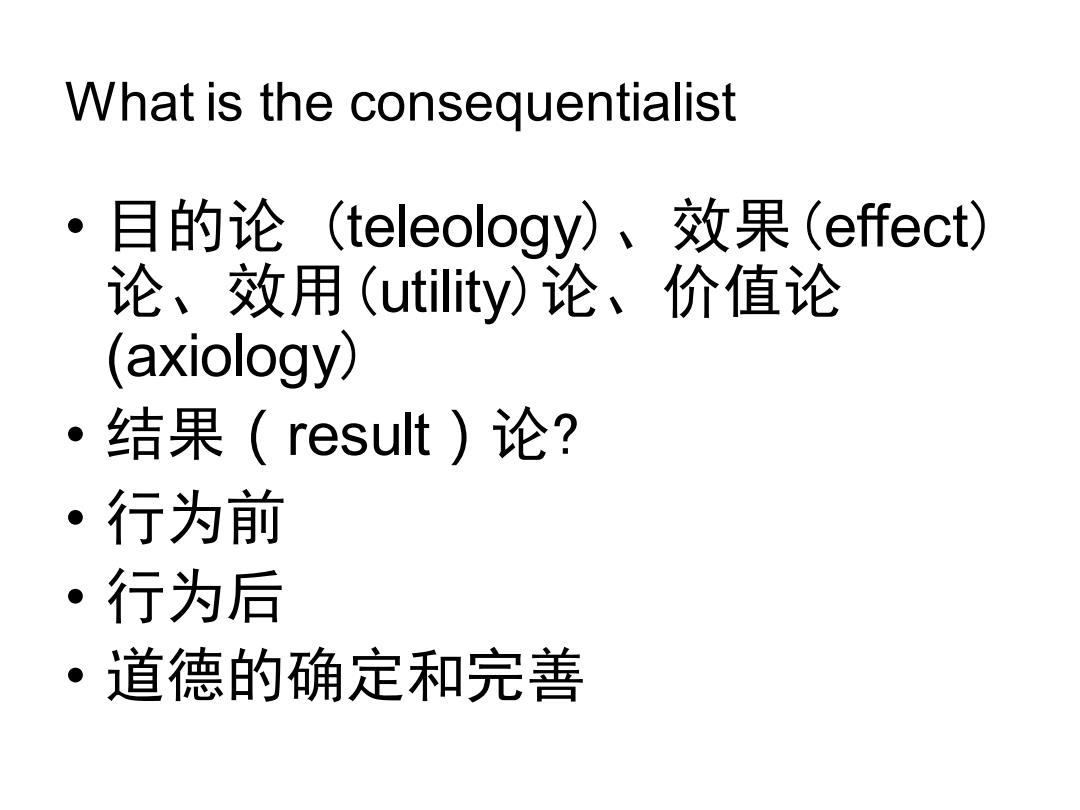
What is the consequentialist ·目的论(teleology)、 效果(effect) 论、效用(utility)论、价值论 (axiology) 结果(result)论? ·行为前 ·行为后 ·道德的确定和完善
What is the consequentialist • 目的论 (teleology)、效果(effect) 论、效用(utility)论、价值论 (axiology) • 结果(result)论? • 行为前 • 行为后 • 道德的确定和完善
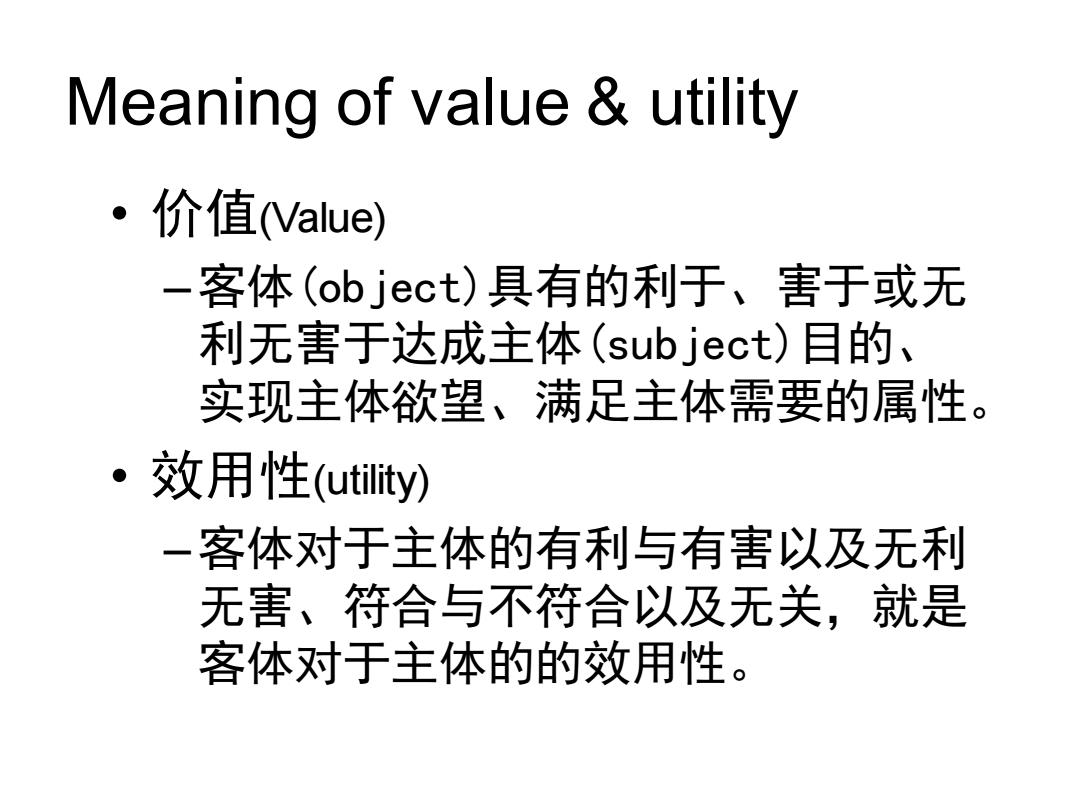
Meaning of value utility 。价值Value) -客体(ob ject)具有的利于、害于或无 利无害于达成主体(subject)目的、 实现主体欲望、满足主体需要的属性。 效用性(utility) 一客体对于主体的有利与有害以及无利 无害、符合与不符合以及无关,就是 客体对于主体的的效用性
Meaning of value & utility • 价值(Value) –客体(object)具有的利于、害于或无 利无害于达成主体(subject)目的、 实现主体欲望、满足主体需要的属性。 • 效用性(utility) –客体对于主体的有利与有害以及无利 无害、符合与不符合以及无关,就是 客体对于主体的的效用性
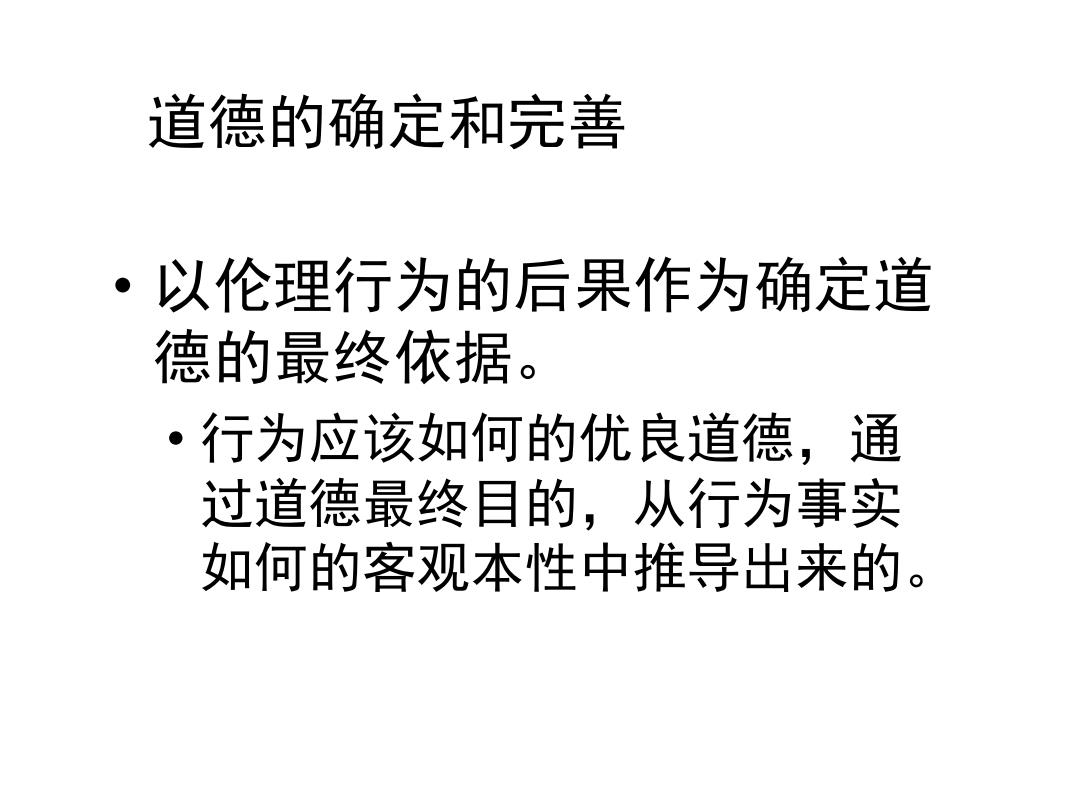
道德的确定和完善 ·以伦理行为的后果作为确定道 德的最终依据。 ·行为应该如何的优良道德,通 过道德最终目的,从行为事实 如何的客观本性中推导出来的
道德的确定和完善 • 以伦理行为的后果作为确定道 德的最终依据。 • 行为应该如何的优良道德,通 过道德最终目的,从行为事实 如何的客观本性中推导出来的
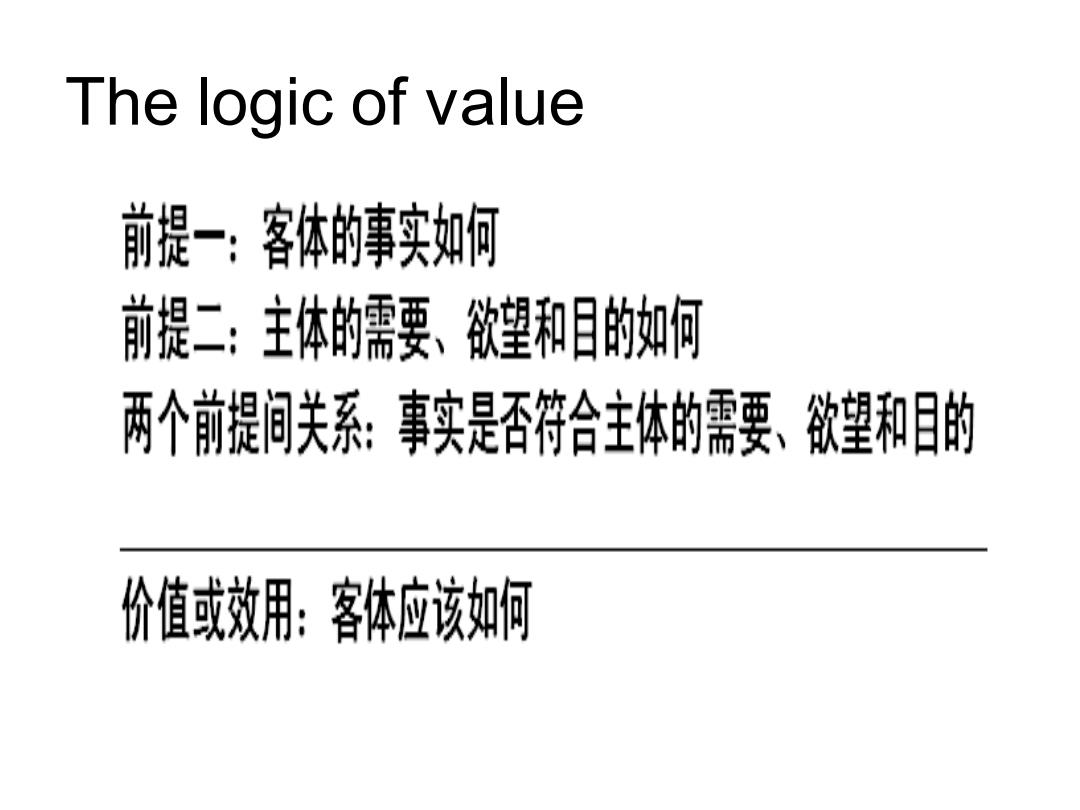
The logic of value 前提一:客体的事实如何 前提二:主体的需要、欲望和目的如何 两个前提间关系:事实是否符合主体的需要、欲望和目的 价值或效用:客体应该如啊
The logic of value
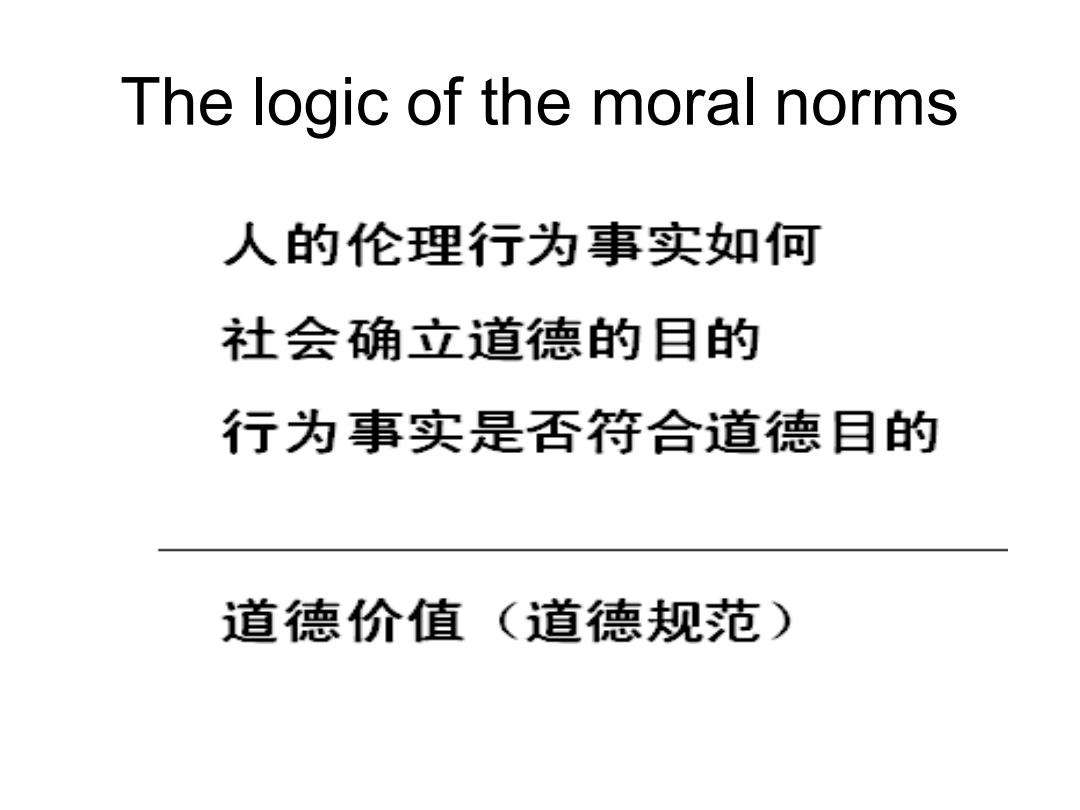
The logic of the moral norms 人的伦理行为事实如何 社会确立道德的目的 行为事实是否符合道德目的 道德价值(道德规范)
The logic of the moral norms
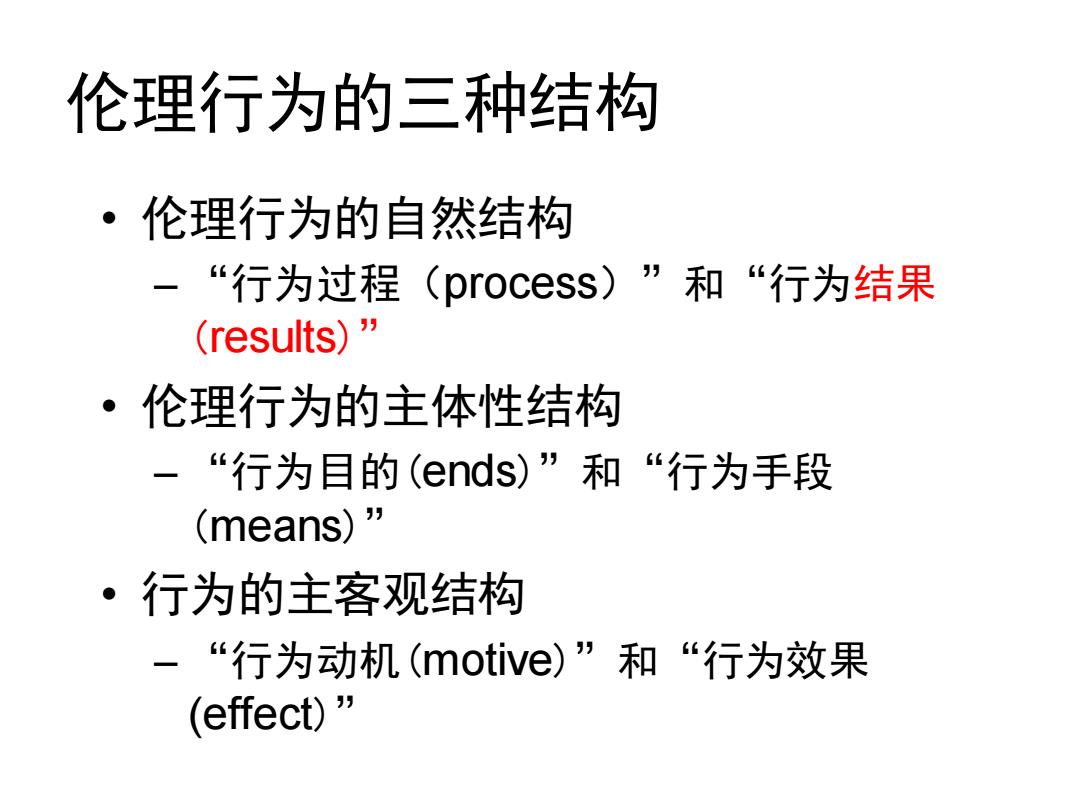
伦理行为的三种结构 ·伦理行为的自然结构 “行为过程(process.)”和“行为结果 (results)” ·伦理行为的主体性结构 -“行为目的(ends)”和“行为手段 (means) ·行为的主客观结构 -“行为动机(motive)”和“行为效果 (effect)
伦理行为的三种结构 • 伦理行为的自然结构 – “行为过程(process)”和“行为结果 (results)” • 伦理行为的主体性结构 – “行为目的(ends)”和“行为手段 (means)” • 行为的主客观结构 – “行为动机(motive)”和“行为效果 (effect)